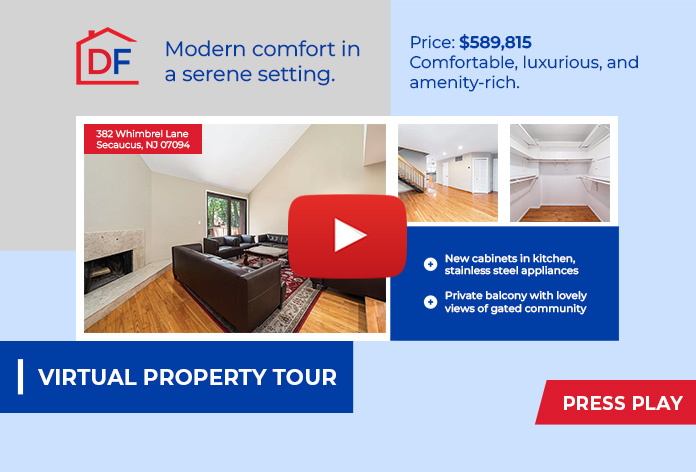When choosing a mortgage, look beyond the down payment. Consider fixed-rate for stable payments or adjustable-rate for initial low rates. Your credit score impacts interest rates, with higher scores leading to savings. Assess your debt-to-income ratio to determine affordability. Compare lenders for tailored deals, focusing on interest rates and terms. Collaborate closely with lenders for smooth financing. A larger down payment can lower rates, but smaller options exist. Negotiate closing costs for long-term savings. Understanding the details and terms is key to finding your perfect mortgage match.
Key Takeaways
- Consider credit score impact on interest rates.
- Evaluate debt-to-income ratio for affordability.
- Compare fixed vs. adjustable-rate mortgages.
- Assess loan terms for financial goal alignment.
- Collaborate with lenders for tailored deals.
Understanding Different Mortgage Types
When exploring mortgage options, it's important to understand the various types available to find the best fit for your financial needs and goals.
Two key distinctions to take into account are fixed-rate and adjustable-rate mortgages. A fixed-rate mortgage locks in your interest rate for the entire loan term, providing stability and predictable monthly payments. On the other hand, an adjustable-rate mortgage (ARM) offers an initial fixed period followed by adjustable rates, which can lead to lower initial payments but may fluctuate over time.
Another critical comparison is between conventional loans and FHA loans. Conventional loans typically require higher credit scores and larger down payments but offer flexibility regarding property types. In contrast, FHA loans are backed by the Federal Housing Administration and often require lower down payments and credit scores, making them a popular choice for first-time homebuyers or those with less-than-perfect credit.
Understanding the differences between these mortgage types can help you make an informed decision that aligns with your financial situation and homeownership goals.
Factors To Consider Before Choosing
Before finalizing your mortgage choice, it's essential to carefully consider several key factors that can greatly impact your financial well-being in the long run.
Two critical aspects to evaluate are your credit score and debt-to-income ratio. Your credit score plays a significant role in determining the interest rate you'll be offered by lenders. A higher credit score typically translates to lower interest rates, saving you money over the life of your mortgage. On the other hand, a lower credit score might result in higher interest rates, increasing the overall cost of your loan.
Your debt-to-income ratio is another vital factor to assess. Lenders use this ratio to evaluate your ability to manage monthly payments. A lower ratio indicates that you have more disposable income available to cover mortgage payments, making you a more attractive borrower. Conversely, a higher debt-to-income ratio may signal financial strain, potentially leading to higher interest rates or even loan rejection.
Carefully analyzing these factors can help you make an informed decision that aligns with your financial goals and promotes a stable financial future.
Assessing Your Financial Situation
Before committing to a mortgage, it's essential to assess your financial situation thoroughly. Start by evaluating your budget to determine how much you can comfortably afford to spend on a monthly basis.
Next, analyze your income sources to make sure that they align with the mortgage terms you're considering.
Budget Evaluation
To guarantee that you find the perfect mortgage match, it's crucial to conduct a thorough evaluation of your budget to assess your current financial situation accurately.
Start by examining your savings planning and credit history assessment. Make sure that you have a clear picture of your financial health by managing your debts effectively and considering your future goals.
Evaluate your monthly income against your expenses to determine how much you can comfortably allocate toward a mortgage payment. Take into account any potential changes in income or expenses that may impact your budget in the future.
By carefully analyzing your budget, you can identify areas where you may need to adjust your spending habits or savings goals to better align with your mortgage needs.
Income Analysis
Conduct a thorough analysis of your income to gain a holistic understanding of your current financial situation when evaluating your ability to secure the perfect mortgage. Start by calculating your debt-to-income ratio and reviewing your credit score to assess your financial health. Guarantee that you have stable employment by preparing for employment verification and gathering the necessary asset documentation to strengthen your mortgage application.
| Income Analysis | Action | Importance |
|---|---|---|
| Debt-To-Income Ratio | Calculate your monthly debts and compare them to your income to determine if you can handle a mortgage payment. | This is essential for lenders to assess your financial stability. |
| Credit Score | Check your credit score regularly and work on improving it if needed. | This is a significant factor in determining your loan eligibility and interest rates. |
| Employment Verification | Have all the necessary employment documents ready for verification by your lender. | This demonstrates your ability to make consistent payments. |
| Asset Documentation | Gather documents showcasing your assets, such as bank statements and investment accounts. | This provides evidence of your financial reserves. |
Comparing Interest Rates And Terms
When analyzing mortgage options, make sure that you carefully compare interest rates and terms to find the best fit for your financial goals. Rate comparison is important, as even a small difference in interest rates can have a significant impact on the total amount you repay over the life of the loan. Lower interest rates can save you thousands of dollars in the long run.
Additionally, consider the term flexibility offered by different mortgages. Some loans may have fixed terms, such as 15 or 30 years, while others may offer adjustable terms. Understanding the implications of each term option is essential to aligning your mortgage with your financial objectives.
Term flexibility allows you to tailor your mortgage to your specific needs, whether you prioritize lower monthly payments or faster equity building. By comparing interest rates and terms diligently, you can make sure that you're selecting a mortgage that not only fits your current financial situation but also aligns with your long-term goals.
Working With Mortgage Lenders
When seeking out the right mortgage for your needs, collaborating closely with mortgage lenders is essential for successfully maneuvering the complex world of home financing. Effective lender communication is key throughout the mortgage process.
Be proactive in providing all the necessary documentation promptly to guarantee a smooth loan approval. Understanding the impact of your credit score is paramount. A higher credit score often translates to better loan terms and interest rates, so make sure to monitor your credit report and address any issues that may arise.
During your interactions with mortgage lenders, ask questions to clarify any uncertainties and ensure that you're well-informed about the terms and conditions of the loan. Remember, open communication is crucial for a successful partnership.
Additionally, stay engaged throughout the loan approval process to address any potential roadblocks promptly. By working closely with mortgage lenders and actively participating in the process, you increase your chances of securing the best mortgage deal tailored to your specific needs.
Tips For Securing The Best Deal
When securing the best mortgage deal, remember to:
- Compare rates diligently.
- Explore various loan term options.
- Negotiate closing costs effectively.
By analyzing rate comparison strategies, you can pinpoint the most favorable interest rates for your financial situation.
Additionally, understanding different loan term options will help tailor your mortgage to fit your long-term goals and budget.
Rate Comparison Strategies
To secure the best deal on your mortgage, employing effective rate comparison strategies is vital for finding your perfect match. When rate shopping, it's important to obtain pre-approval to present yourself as a serious buyer and to understand how much you can borrow. This can help streamline the process and potentially give you an edge when negotiating rates.
Your credit score plays a significant role in the interest rate you'll be offered. A higher credit score typically results in a lower interest rate, potentially saving you thousands of dollars over the life of the loan. On the other hand, a lower credit score may lead to higher rates.
Additionally, consider your down payment options. While a larger down payment can lower your interest rate and reduce the overall amount borrowed, there are also programs available for those with smaller down payments.
Understanding these factors and comparing rates from different lenders can help you secure the best mortgage deal tailored to your financial situation.
Loan Term Options
Exploring various loan term options can greatly impact securing the best mortgage deal tailored to your financial goals. When considering loan term options, it's crucial to dive into the intricacies of term flexibility, evaluating how the loan duration can align with your long-term financial plans.
Here are some key factors to keep in mind for securing the best mortgage deal:
Payment Options: Understanding the different payment options available for various loan terms can help you choose a plan that fits your current financial situation while keeping your future goals in mind.
Term Variations: Exploring term variations such as 15-year or 30-year mortgages can have a significant impact on the overall cost of the loan, monthly payments, and the total interest paid over the life of the mortgage.
Loan Duration: Evaluating the loan duration in relation to your financial stability and future plans can help you select a term that offers the right balance between manageable monthly payments and long-term savings.
Negotiating Closing Costs
Considering negotiation strategies for closing costs can greatly impact the overall cost of your mortgage deal, allowing you to secure the best possible arrangement for your financial situation.
When delving into fee negotiation, it's important to request a detailed cost breakdown from your lender. Understanding each cost component empowers you to identify potential areas for negotiation. Some expenses may be non-negotiable, such as government fees, but others like origination charges, title insurance, or appraisal fees could be open for discussion.
Expense management is key during this process. By carefully scrutinizing each cost and comparing quotes from different lenders, you position yourself to negotiate more effectively.
Budgeting considerations play a significant role in this phase. Have a clear overview of your financial capabilities and limitations. This knowledge enables you to push for cost reductions where possible, ensuring that the final closing costs align with your budgetary constraints.
Frequently Asked Questions
Can I Get A Mortgage If I Have A Low Credit Score?
Yes, you can get a mortgage with a low credit score. It may be challenging, but with credit repair and strategic financial planning, you can improve your creditworthiness and increase your chances of securing a mortgage.
How Does My Employment History Affect Mortgage Approval?
Your employment history greatly impacts mortgage approval. Lenders look for income stability and are wary of job hopping. If self-employed, meticulous documentation is essential. Demonstrating a consistent work record enhances your chances of securing a mortgage.
What Are The Implications Of Prepayment Penalties?
When considering prepayment penalties, keep in mind that they can impact refinancing options by adding costs. To avoid penalties, make sure that you understand the terms of your mortgage agreement. Being aware of these terms can save you money in the long run.
Are There Any Special Programs For First-Time Homebuyers?
As a first-time homebuyer, you should explore government assistance programs and grants designed to make homeownership more accessible. Consider attending homebuyer education workshops to gain valuable insights and guidance in successfully navigating the process.
Can I Negotiate Closing Costs With The Lender?
When negotiating closing costs with the lender, explore strategies to reduce fees. Request itemized breakdowns, compare rates, and inquire about lender fee flexibility. By being informed and assertive, you can potentially save money on closing expenses.
Conclusion
Now that you have explored the various mortgage options and considered your financial situation, it's time to find the perfect match for you.
Like a skilled matchmaker, choose the mortgage that aligns with your needs and goals.
With careful consideration of interest rates and terms and by working closely with lenders, you can secure the best deal possible.
Remember, finding the right mortgage is like finding the perfect partner — it takes time, effort, and a bit of intuition.












